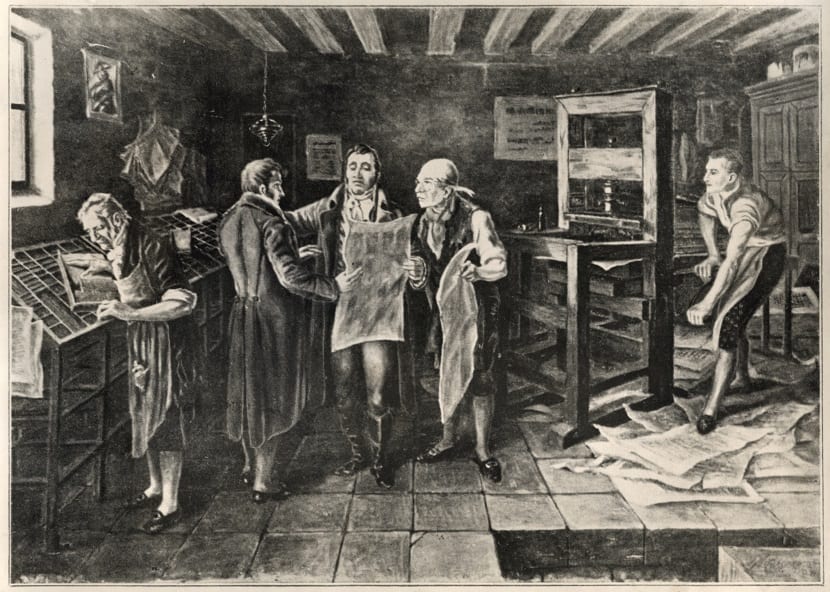
Literature, throughout history, has had many interesting facts like any other subject. Today in Actualidad Literatura, we come to review some of these curious literary notes that you may not know.
We start at 3, 2, 1 ...
Did you know…?
Difference between literary form of expression and gender
Often times, lyric is confused with verse and narrative with prose. It is true that lyrical forms are usually written in verse, just as we associate narrative with prose because it is its most common form of expression. However, we must bear in mind that epic poems consist of narrative in verse because they tell us a story, and that there is a poetic work or lyrical prose, in which the author expresses his feelings,
The lyrical prose, full of rhythm and abundant in literary resources, is very close to free verse, although the speech is not divided into verses.
On the other hand, the theater can also be written in verse or prose, depending on the author's preference or the fashions and tastes of the time.
Where do some types of verses come from?
El hendecasyllable It is a verse of Italian origin that was incorporated into the Spanish meter in the XNUMXth century thanks to the work of authors such as Garcilaso de la Vega and Boscán. On the other hand, these two authors were the "guilty" and responsible for introducing stanzas such as lira and royal eighth to Spanish poetry.
El Alexandrine, on the other hand, and the dodecasyllable, They are medieval verses that were no longer used, until the time of Modernism, where it was used for poetic experimentation.
Likewise, the sonnet is an Italian poem that is definitely introduced in Spain thanks to the followers of the previous authors. However, in the fifteenth century, the Marquis of Santillana had already made a first attempt to accommodate him to Castilian with his Sonnets dated in italics.
Birth of the modern novel
In Spain, the first modern novels that set the standards for the genre are Lazarillo de Tormes, an anonymous work from the XNUMXth century, and Don Quixote, written by Miguel de Cervantes in the XNUMXth century. These two works are distinguished from previous novels by the realism of their stories, the depth of the characters, and the narrative techniques used.
Origin of word «novel»
The word novel comes from Italian term short story, which designated a short narrative. In Spain, it originally had that meaning that varied over time, to designate narratives of greater length and complexity, a meaning that it currently has.
What is the fourth wall?

In the theatrical language it is called fourth wall to the separation between the representation and the audience, in reference to the wall that is missing from the stage and that allows the spectators to observe what happens on stage. This imaginary wall not only establishes a physical border between actors and audience, it is also a literary convention: it separates reality from represented fiction. Some contemporary works break the limit of the fourth wall; the actors can speak or interact with the public and this can access the scene.
Birth of the printing press and its relationship with Humanism
El Humanism was born in Italy as an intellectual movement and spread throughout Europe throughout the XNUMXth and XNUMXth centuries. The humanists recover the classical culture of Greece and Rome and promote the improvement of the vernacular languages of the different countries.
The invention of the printing press around 1450 by the German Johannes Gutenberg He made an essential contribution to the dissemination of new ideas. The owners of the printing presses used to be humanists, who made their workshops true academies where classical texts were discussed and ideas and opinions were exchanged.
In Spain the most important humanist of the XNUMXth century was Elio Antonio de Nebrija, author of Castilian grammar.
What do you think of these data related to literature? If you are interested, let us know and we will offer you much more information like these today.